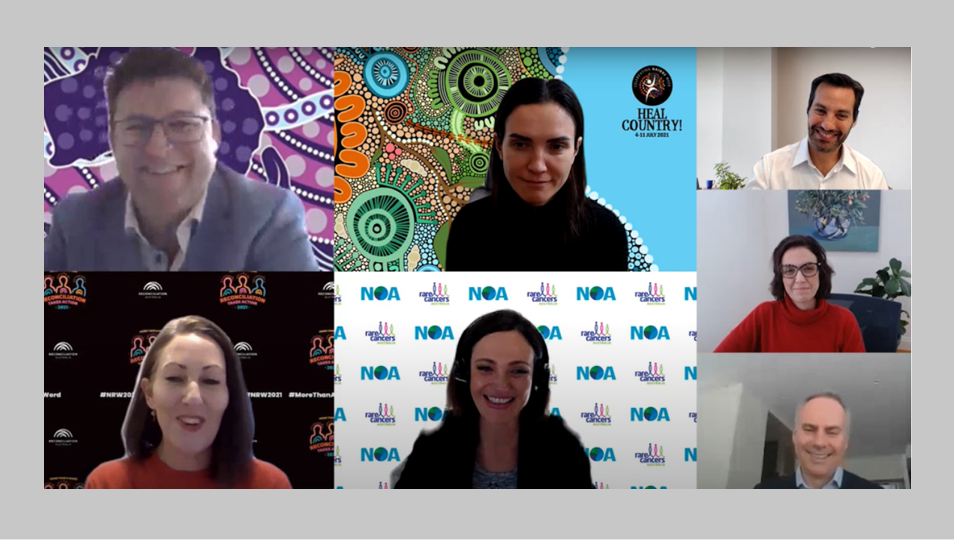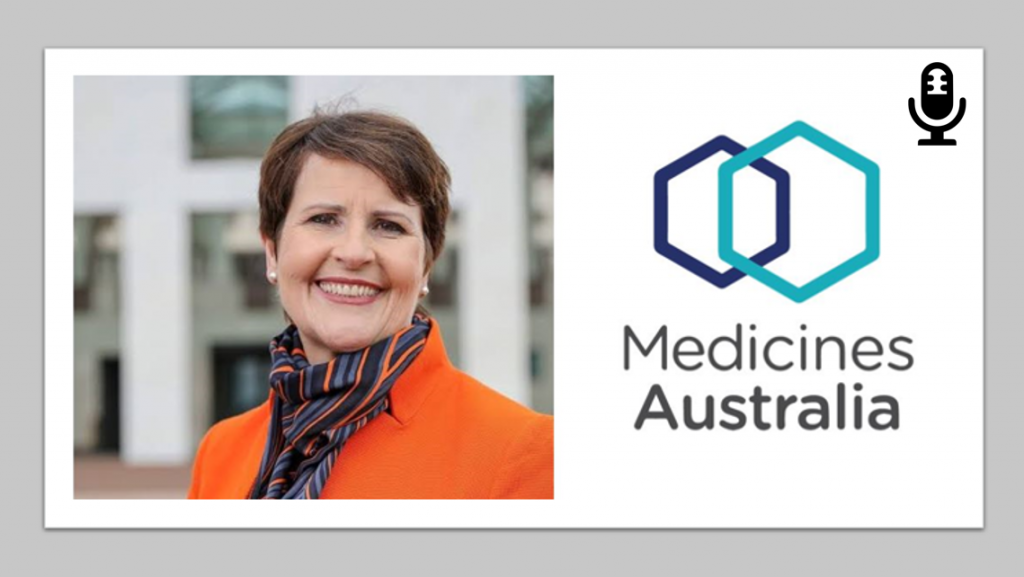News & Trends - Pharmaceuticals
Pharma leaders share views on the rights and roles of Australian cancer patients – Gilead, AZ, Roche, MSD, BMS and Janssen

Pharma News: At the House of Representatives Inquiry hearings, representatives from several patient advocacy groups voiced the lack of transparency and inadequate involvement from patients in the Health Technology Assessment (HTA) processes for the reimbursement of novel medicines and medical devices.
Richard Vines, Founder and Chairman of Rare Cancer Australia and Dr Amanda Ruth, Head of Policy & Public Affairs at Rare Cancers Australia and Executive Director of National Oncology Alliance (NOA), led a session with pharmaceutical industry leaders on their perspective regarding the rights and roles of Australian cancer patients in their healthcare journeys.
Pharmaceutical leaders from Gilead, AstraZeneca, Roche, MSD, BMS and Janssen reflected on how patient rights differed based on their experiences of working in industry markets overseas and within the Asia Pacific region.
Jaime McCoy, General Manager at Gilead Sciences, said “Working across the Asia Pacific region in Indonesia and South Korea and also in Europe, what stands out for me is that there is a lot of passion in patient groups. However, the passion needs to be organised and it needs to be directed in a way that can have impact. Whilst all passionate groups can support patients, we are ideally looking for patients to have a voice at the table to help us shape policy. In shaping the environment moving forward, it is really critical to have patient groups that are savvy as to how the system works and how influence can happen inside those systems with regards to government policy and Department of Health. This is where I see Australia is much further ahead.”
Michael Azrak, VP and Managing Director, Australia and New Zealand, Merck Sharp and Dohme said “In South Africa and the Middle East, the experience is very different in terms of patient rights. They are fairly limited in those environments, and part of that is due to the healthcare system as there is no national reimbursement system. Where there are more sophisticated patient advocacy groups the voice and the rights of patients, like in Australia, are more amplified.”
Biljana Naumovic, Managing Director at The Janssen Pharmaceutical Companies of Johnson & Johnson, stated “I worked in Europe, Middle East, Africa, Asia Pac and in every country patient organisations are at different levels of organising themselves. Sometimes we have these expectations of patient organisations to solve all the issues that patients might have that not necessarily sit in the realm of what a patient organisation should do. There are two huge aspects where I have seen it [patient organisations] work fantastically. The first is in educating the public on the needs in a therapeutic area on what the issues are and rallying broader support for the benefit of patients, holistically. The second is about shaping the policies, however, unless a patient organisation is clear on the things they want to change, it is hard to make an impact with any government.”
Neil MacGregor, Managing Director, Australia & New Zealand at Bristol-Myers Squibb, commented “In the countries I have worked in patient groups play a critical role in elevating awareness, and making people understand what their rights and entitlements are. That differs in maturity based on the infrastructure of how healthcare is delivered in each country.”
Stuart Knight, Managing Director at Roche Products, said “I have worked in six countries with publicly funded healthcare systems and probably the least developed was in Hungary in terms of clinician and patient relationship. We were striving for patient-centred care which is all around collaboration and shared decision making so operating in those kinds of models can be quite challenging. Patient groups are extremely important but unfortunately in some countries they are very underdeveloped.”
Liz Chatwin, Country President at AstraZeneca, commented “I was there [South Korea] for four years and there is no doubt that patients with cancer in South Korea feel the need for their voice to be heard exactly the same as patients in Australia. In fact, the Korean Cancer Care Alliance was modelled on the Cancer Care Alliance in Australia so there was collaboration between the industry, specialists and the patient organisation. They collected evidence which helped raise the voice of patients who wanted better access to treatments.”
Dr Ruth touched on the relevance of patient advisory boards from the industry’s viewpoint, the capacity in which patients can become involved, and tools to capture and incorporate patient preferences and patient reported outcomes into decision making for faster treatment access and reimbursement.
Ms McCoy said “Gilead has a global patient engagement team focused on elevating the patient voice throughout the drug development process. We also engage with patients locally through organised patient groups that identify patients who are passionate and knowledgeable and can help us to understand where we can add more value to the patients being treated with our medicines.
“One of the most important roles that patients can play is helping us to really understand value in the medicines that we develop. Clinical trials do not always recognise what patients see as great breakthroughs or great progress when it comes to their treatment. Of course, our clinical trials need to meet the endpoints that they are designed to meet to get us through a regulatory and reimbursement process, but as the regulators and payors become better at listening to patients we can develop medicines that more holistically address the concerns of patients as they are fighting diseases that we are dedicated to addressing,” she added.
Ms Chatwin commented “I think the tide is turning on this. With the House of Representatives Inquiry the noise is more like a crescendo. It is critical for patient benefits and patient outcomes to be included in a formal way in the evaluation process of new medicines and treatments.”
What remains clear is the important role patients play in informing and driving change because the industry leaders agreed that health is not a cost, it is an investment.
Ms Naumovic said “Our Health Technology Assessment (HTA) system has been very rigid for the past 30 years. We need to start incorporating the value behind innovation, add patient voices and incorporate patient reported outcomes. The benefits of those investments cannot be seen if we do not look at the healthcare budget holistically.
“We need to to ask for a meaningful HTA reform that is going to enable incorporation of a patient voice, because currently in the system, you can raise your voice, even if you are at the table, and it can be left in vain because there are no process to take what matters to patients into account,” she concluded.
Digital & Innovation

Medical drone to reduce health equity gaps in rural and remote Australia
A specialised medical drone which increases accessibility to essential health services such as pathology, medicines, and telehealth services in rural […]
MoreNews & Trends - Pharmaceuticals

We’ve spent more on healthcare, but it’s been worth it
Healthcare expenditure is surging, with Australia now allocating approximately one-tenth of its budget to this sector. This financial uptick prompts […]
MoreNews & Trends - Pharmaceuticals

New partnership to raise the bar in precision oncology in Queensland
Pharma News: The Australian Translational Genomics Centre (ATGC) is teaming up with non-profit research organisation Omico and the PrOSPeCT program […]
MoreNews & Trends - Biotechnology

AusBiotech appoints new CEO: Former Sanofi corporate affairs and sustainability leader takes the helm
Biotech News: AusBiotech, the nation’s leading industry body for the biotech sector, has named former leader at Sanofi, Rebekah Cassidy, […]
More